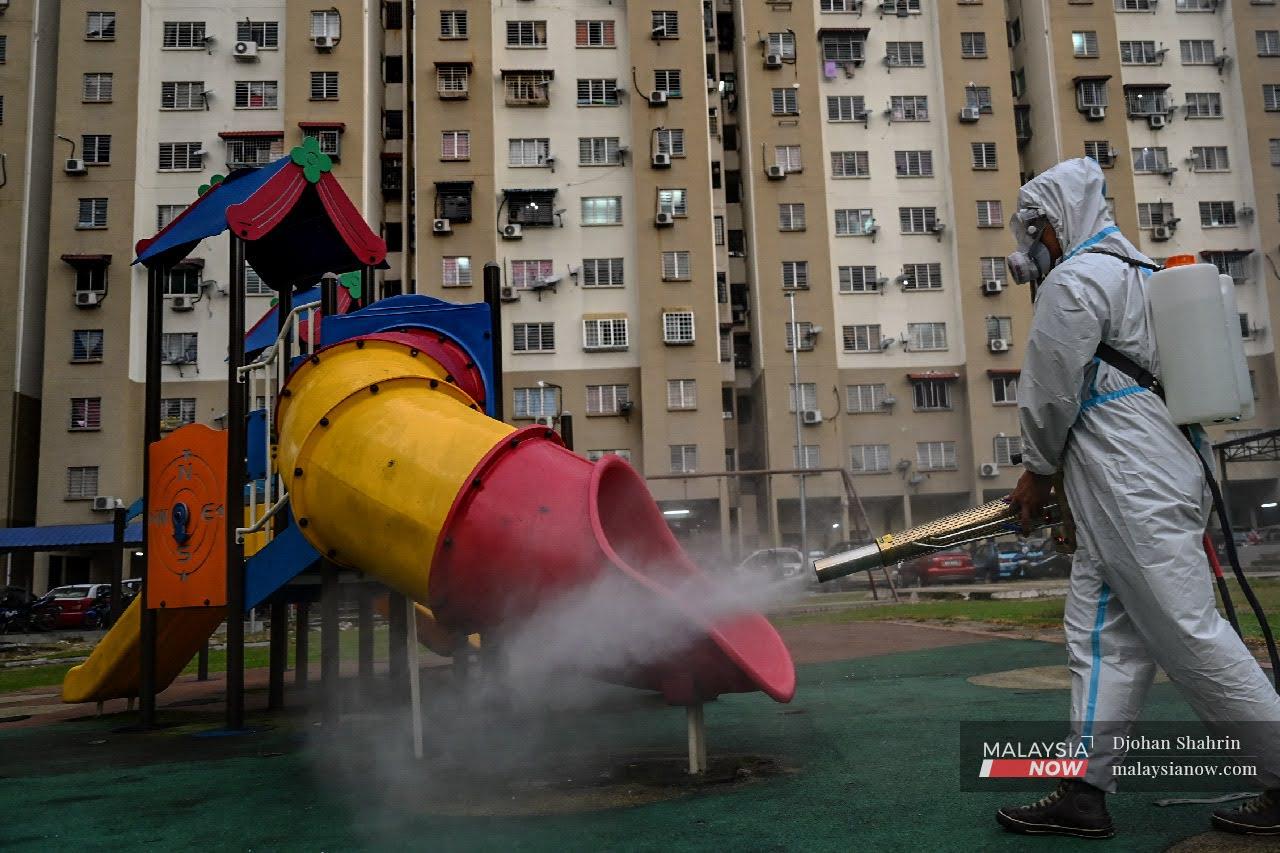Better safe than sorry, health experts say on chances of Covid-19 transmission through touch
They agree with findings by the US Centres for Disease Control and Prevention that the risk of contracting Covid-19 this way is low, but recommend taking extra precautions anyway.
Just In
Health experts say it is always better to take extra precautions against the spread of Covid-19 despite recent findings by the top US health agency that the risk of contracting the virus from touching a contaminated surface is less than one in 10,000.
The Centres for Disease Control and Prevention (CDC) previously acknowledged that surfaces are not the primary way that the virus spreads, but in its updated surface cleaning guidelines this week said evidence had demonstrated that the risk by this route of infection of transmission is actually low.
Dr Kuljit Singh, president of the Association of Private Hospitals of Malaysia, said he agreed with the CDC findings but that it remained advisable to take extra care especially in public places.
He said the lifespan of the Covid-19 virus outside the human body remains unknown as much depends on factors such as temperature, surface type and the type of virus itself.
He added that transmission could occur quickly if someone were to sneeze or cough, and the spray contaminates the area.
“I understand what the CDC is trying to say, but imagine if someone were to touch a contaminated surface almost immediately after a person has sneezed or coughed on it.
“It’s difficult to give an answer on how long a virus can live outside a host,” he said.
However, Kuljit also acknowledged that people cannot expect every area they visit to be disinfected before they feel safe.
“It’s best to take precautions by sanitising your hands frequently and wearing a proper mask,” he said. “We try to do it with common sense. Keep your hands clean and don’t touch everything.”
Fear of contracting Covid-19 through contaminated surfaces had initially sparked a trend of glove wearing, with some commercial outlets still providing disposable gloves for customers upon entry to the premises.
But Kuljit warned that this practice could do more harm than good, saying the use of gloves might lull users into a false sense of security.
“Once someone wears plastic gloves, psychologically they think they are protected. But they will touch everything everywhere because they think they are protected, not knowing that the virus will be transmitting even faster,” he said.
Even in hospitals, the use of gloves is not encouraged, he said.
“In some hospitals we don’t allow patients to come in with gloves. They give a sense of security for themselves but become dangerous to others.”
When the Covid-19 pandemic first hit, researchers warned that the virus could survive for days on plastic or stainless steel. The CDC at that point advised that infection could occur if people were to touch a contaminated surface before touching their eyes, nose or mouth.
But CDC director Dr Rochelle Walensky said at a White House briefing on Monday that evidence had shown that the risk of infection through this route was low.
She also said that disinfection is only recommended in indoor settings where there has been a suspected or confirmed case within the last 24 hours.
This is in line with the findings of Swiss scientists earlier this year, who said in their studies that the risk of being infected with Covid-19 by touching contaminated surfaces was “less than five in 10,000”.
The studies analysed hundreds of samples taken from surfaces that are frequently touched in everyday life and concluded that while traces of the virus could be found on some, the concentrations were “so low that the risk of infection from touching a contaminated surface was estimated to be low”.
However, the scientists said this might not apply to objects such as tables and dishes on which people might cough or sneeze more easily and where “droplets with high viral loads” might be found.
Dr Raj Kumar Maharajah, president of the Medical Practitioners Coalition Association of Malaysia, agreed with the CDC’s recommendation that areas be disinfected only in cases of confirmed or suspected infections.
“It is a very practical suggestion,” he said, adding however that precautions should still be taken in crowded spaces where contact with contaminated areas might occur.
“I think we have been focusing equally on virus transmission through breathing and touching,” he said. “That’s why we have been advised to use masks and to wash our hands frequently.”
He, too, agreed that wearing gloves should not be a norm in public places.
“Wearing gloves causes more risk of infection. The best way is to sanitise your hands frequently,” he said, adding that current SOPs should be enough to prevent the spread of Covid-19.
Subscribe to our newsletter
To be updated with all the latest news and analyses daily.
